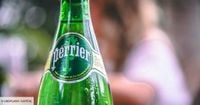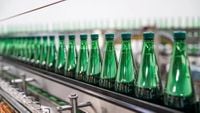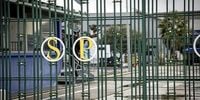The Perrier brand is currently embroiled in a significant controversy over contaminated water issues that may jeopardize its future. An investigation by Le Monde and the investigative unit of Radio France has revealed that approximately 30% of brands under the Nestlé umbrella, which includes Perrier, used prohibited purification systems to conceal contaminated water. This illegal practice allegedly went unnoticed by authorities, raising serious questions about regulatory oversight.
Recent reports indicate that pathogenic bacteria have been detected in the "natural mineral" water sourced from Perrier's factory in Vergèze, located in the Gard region of Occitanie. Specifically, a document from the regional health agency confirmed the presence of intestinal bacteria in 75-centiliter Perrier bottles. In light of these findings, Nestlé has stated that the affected products were not sold and that hundreds of thousands of bottles are currently blocked pending destruction.
However, the company did not alert health authorities immediately as required by the public health code. The presence of these germs was first noted on March 11, but the incident was only reported to the authorities ten days later, on March 21. This delay has raised eyebrows, particularly as the prefect of Gard, Jérôme Bonet, is expected to make a crucial decision regarding the brand's future.
According to the director-general of ARS Occitanie, there is a recommendation to cease the production of natural mineral water at the Vergèze site, which could lead to the complete disappearance of the Perrier brand. Reports have indicated that all of Perrier's boreholes no longer possess the "original purity" required for the mineral water designation, prompting experts to issue an unfavorable health notice regarding its operation as natural mineral water.
The filters used in the purification process, while intended to clean polluted water, have proven ineffective at eliminating all harmful bacteria, leaving some present on the surface. Despite these alarming findings, the French government granted a derogation in 2023 allowing Nestlé to continue using these filters, a decision that has come under scrutiny.
In a related development, Nestlé has faced legal action from fraud authorities regarding practices at the Vergèze facility that may constitute criminal offenses. This scrutiny comes on the heels of a previous incident in April 2024, when the company was forced to destroy three million bottles due to contamination from fecal bacteria. At that time, the contamination was attributed to intense rainfall affecting the groundwater quality in the area.
As the situation unfolds, the ARS is considering a complete destruction of the contaminated products. Discussions are planned between the agency and Nestlé Waters, with the possibility of a complete halt to production looming. The ARS has already indicated that the label "natural mineral water" may be revoked for all exploited boreholes at the Vergèze site, which would effectively eliminate the Perrier brand from the market.
In a statement, Nestlé has tried to downplay the severity of the situation, asserting that "all products placed on the market are safe" and that the measures taken are merely standard internal quality management processes. Yet, the acknowledgment of an unusually long delay in reporting the contamination has raised further concerns about the company's transparency and commitment to public health.
As the prefect of Gard prepares to make a decision that could have lasting implications for Perrier, the public waits with bated breath. The brand, known for its iconic green bottles and sparkling mineral water, may soon face an uncertain future if the recommendations from health authorities are enacted. With the scrutiny from both regulatory bodies and the public intensifying, the coming weeks will be critical for Nestlé and its Perrier brand.
In summary, the ongoing contamination issues at the Perrier factory highlight significant concerns regarding water safety regulations and corporate accountability. As investigations continue and health authorities weigh their options, the future of one of the world's most recognized sparkling water brands hangs in the balance.



